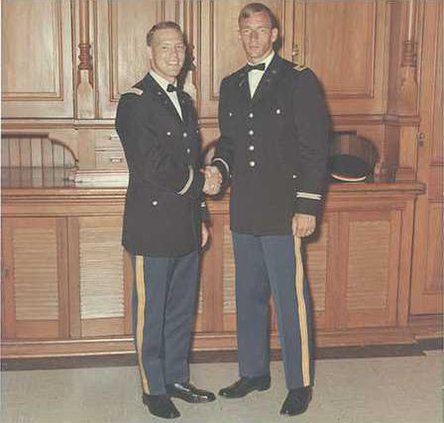When I arrived at Kansas City International I knew what I was seeing wasn’t typical. After all it was 5:15 on a Friday morning and the place was packed. As I walked pass the baggage check, I noticed most of the travelers were college students.
I started to connect the dots. This was KU’s fall break. My destination, like theirs, was Las Vegas. Mine was a business meeting. They had their own ‘business.’ One thing was for sure — this had to be the earliest they have been up on a Friday morning.
The TSA line resembled a post-game gathering at the Wheel. Coeds were taking selfies and doing other things old guys don’t understand. For once, it seemed, the ID’s they showed the TSA guy were actually theirs. This time none were named McLovin.
Post security, they gathered around in a circle with the Queen Bee in the middle, she encircled with clones from a LuLu Lemon ad. The Las Vegas tourism ads that promote the notion that ‘what happens Vegas stays in Vegas’ would soon have zero relevance to their next 48 hours.
On the plane, the Southwest attendants were in a cheery mood. They made an announcement about anyone owning a Samsung Galaxy phone. Absolutely no students would be caught dead with anything so uncool as a Galaxy model. The attendant declared “You cannot drink the alcohol you brought on the plane.” It seems those tiny liquor bottles pass TSA muster.
Who knew? Pi Phi’s, apparently.
And yes it was fun, and we could all use more humor these days.
But as we departed, I considered how different the life of a college student is today from not long ago. One does not have to look far to conclude that many kids these days have little appreciation for the sacrifices others their age made to enjoy the freedom we share today. Surveys of millennial’s tell us their top aspiration is to be rich, and second, to be famous.
Life was very different 35 years earlier when I was a senior at KU.
Obviously, there was no fall break and no Vegas. I knew very well the time when students were consumed not with a trip to Nevada but instead Saigon. I can distinctly remember that day in December, 1969, where the entire country was transfixed to the black and white television as blue capsules were drawn randomly for the draft. Depending on your age, you might remember it too.
College aged boys whose birthdate was September 14 had a bad day. They were number one. Likewise, the turmoil brought by an unpopular war hit very close to home. The night the KU Union burned in 1970 seems still fresh in my mind.
My own reflections were bolstered by the book I had in my briefcase that morning at KCI. “The Long Grey Line: the American Journey of West Point’s Class of 1966” — Rick Atkinson’s Pulitzer Prize winning book about the best and the brightest who were sent to Vietnam following graduation.
Of the 579 graduates, 550 served in Vietnam, 100 were wounded, and 30 were killed in action. Those who returned continued to embrace the West Point maxim “Duty, Honor, Country.” This book was recommended to me by an in-law, Bill Poole, who was in that West Point graduating class.
Poole made a buddy in that class – a kid from Louisiana named John Thomas Hoskins. “Hos was my roommate and the best friend I have had” Poole told me. “We were sparring partners and teammates. Hos was a literary scholar and a unique combination of a Cajun redneck, romantic poet, and American patriot.” Atkinson’s book describes Hoskins as a ‘rangy boxer from Louisiana’ who loved to read and write poetry.
When Poole married his sweetheart Barbara McCusker in July, 1966, there was one obvious choice for best man. Hoskins.
Hoskins and Poole both went to Vietnam. Hoskins served in the 9th Infantry Division. Poole, was an Advisor to a District chief and local Vietnamese military unit. Both served in the Mekong Delta. At the end of Hoskins year of duty, he decided to extend his commitment for another six months. He told Poole he extended “so that married guys like you won’t have to.” On May 6, 1968, while on a search and destroy mission in the Mekong Delta, he fell victim to a command detonated 155 mm artillery round booby trap. Poole was a pall bearer at his funeral at West Point before leaving for his tour in Vietnam.
When Poole returned from his tour in Vietnam in July 1969, he was told not to wear his uniform at the LA airport to avoid protesters. He ignored those instructions.
I honestly doubt many students on the plane that day have a true understanding for what life was like in the 1960’s for kids their age. But Atkinson’s book, and living historians like Poole remind us that not long ago, life was very different for college aged men.
Reflections on life as a college senior, then and now, and remembering sacrifices made by others




